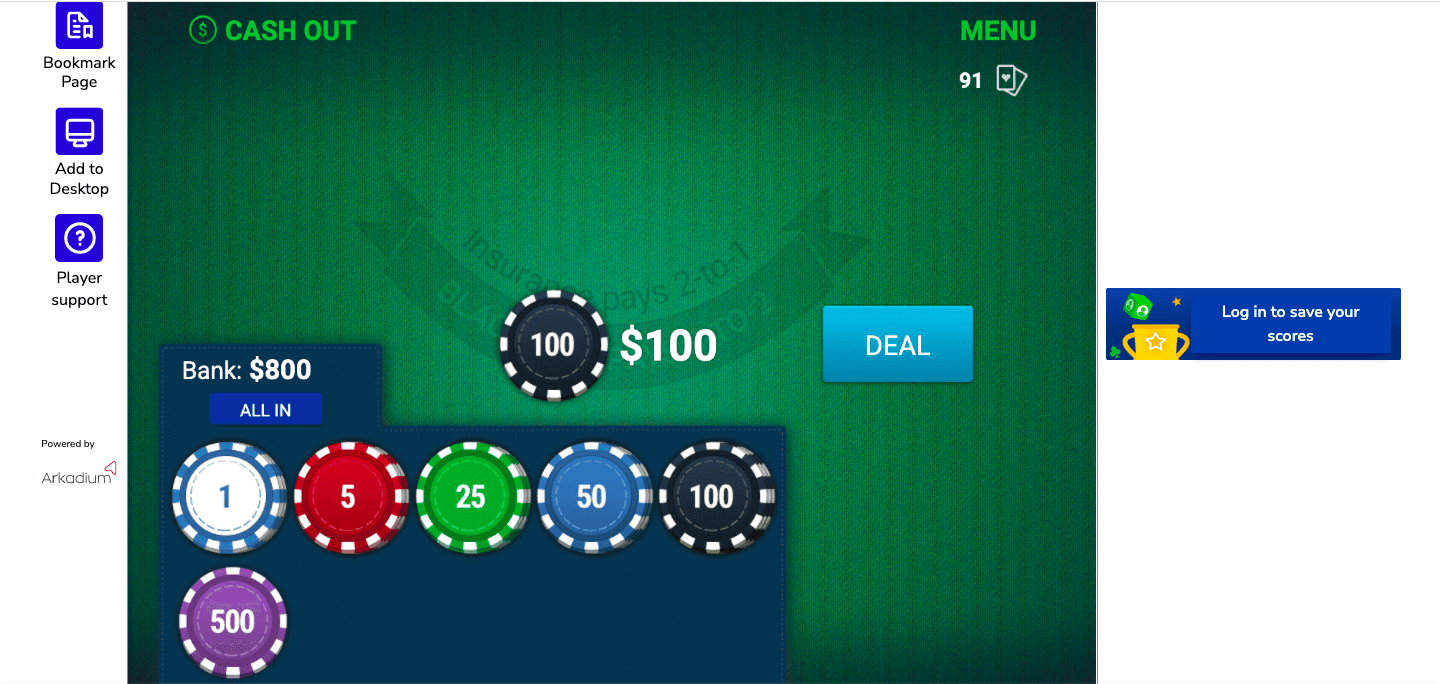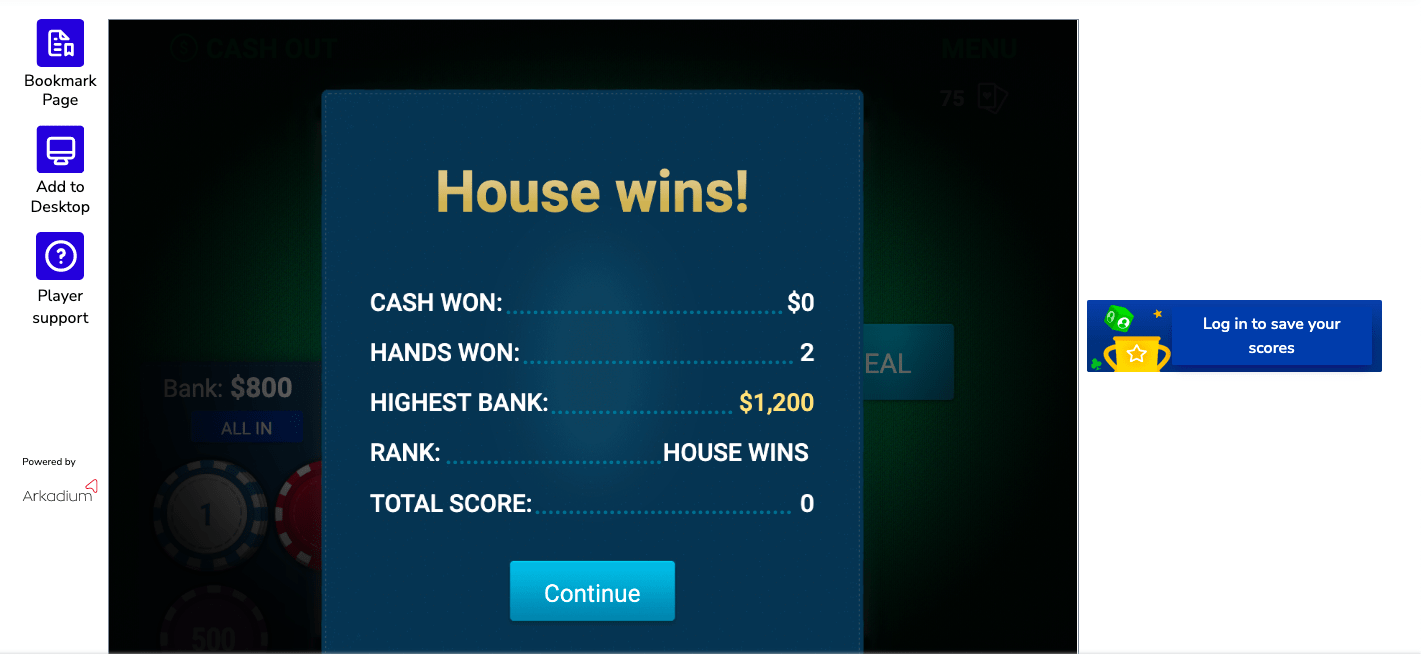“If I wanted to roll dice by myself, I would roll dice by myself.”
I played Black Jack by the Washington Post, a casino game with many variants (under the name 21) and unknown precise origin. I was not able to find blackjack in a multiplayer mode online for free. In the Washington Post version, there is only one player and who competes with the “dealer”. Having not played BlackJack or many chance-based card games before this, I wasn’t familiar with the rules, and there was not a clear onboarding on how to play, so I was confused what I was supposed to do, so I had to look up the rules separately. The first procedure in blackjack is to bet a certain amount of money in chips. Then, you are dealt 2 cards, one face down and one facing up. The objective is to get a card sum higher than the dealer’s hand without going over 21 (“bust”) by taking four actions hitting (drawing another card) or standing (keeping your hand). In some other cases, you can also fold (forfeiting half the bet), double down (double your bet and take one more card), and split your hand into two hands. Using chips rather than coins or real money helps the player enter the magic circle.

The main mechanic of choices that depend on chance, creates a dynamic of weighing the potential consequences of each action, such as the ability to earn double the amount or to lose entirely from going bust. These decisions are quickly punished with losing chips and rewarded with gaining chips, giving the player short bursts of joy and defeat. Combined with the psychological tendencies to attribute our successes to skill and losses to situational luck, this quickly evolves into an addictive loop where gamblers bet their lives on their next big win.
Interestingly, while looking for rules, I also discovered a “strategy” section at the bottom of the page.

Intrigued, I looked into the strategies for BlackJack more, and discovered strategic guides to make the best of almost every situation based on what number the dealer has up and your current sum. I further learned how increasing the number of decks in play increase the “house edge” — the house’s statistical advantage–and that these strategies give BlackJack one of the lowest house edge in casino games.

Regardless, as a beginning player, I did not have a good time playing BlackJack, which I recorded in the quote at the beginning of this page (which occurred, interestingly, while I was at a big loss). I think its premise is simple, but the complexities of its strategy due to the number of possible situations makes it feel like a game of pure chance chance. Ultimately, I think it serves its purpose well of being a casino game and fostering addiction, and it feels less morally corrupt because of the opportunity for strategy. However, I think this game would be improved if gambling addictions were more actively warned against and discouraged in both online situations and in real life casinos, as well as if there were more structures in place for helping gambling addicts.



